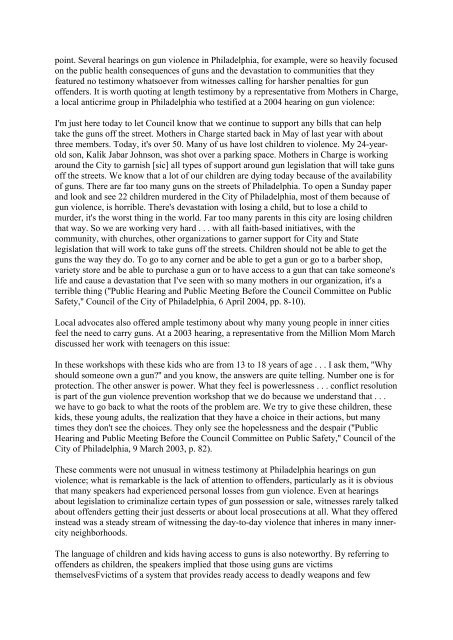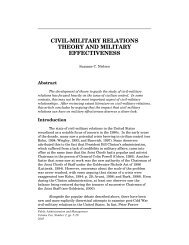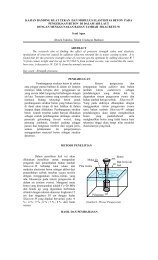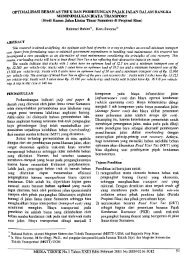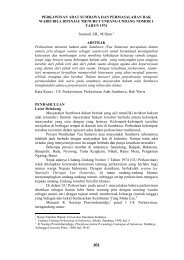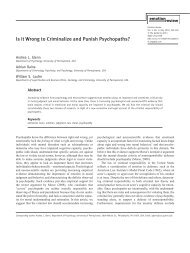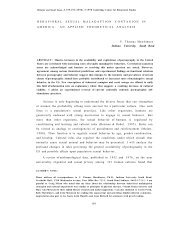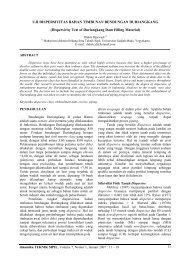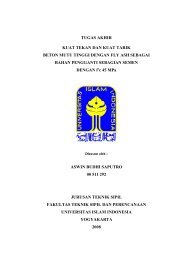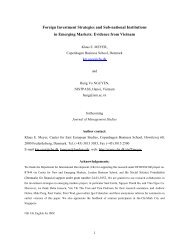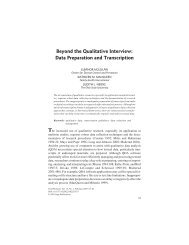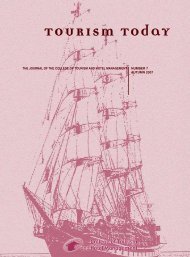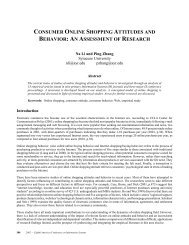The Invisible Black Victim: How American Federalism Perpetuates ...
The Invisible Black Victim: How American Federalism Perpetuates ...
The Invisible Black Victim: How American Federalism Perpetuates ...
You also want an ePaper? Increase the reach of your titles
YUMPU automatically turns print PDFs into web optimized ePapers that Google loves.
point. Several hearings on gun violence in Philadelphia, for example, were so heavily focused<br />
on the public health consequences of guns and the devastation to communities that they<br />
featured no testimony whatsoever from witnesses calling for harsher penalties for gun<br />
offenders. It is worth quoting at length testimony by a representative from Mothers in Charge,<br />
a local anticrime group in Philadelphia who testified at a 2004 hearing on gun violence:<br />
I'm just here today to let Council know that we continue to support any bills that can help<br />
take the guns off the street. Mothers in Charge started back in May of last year with about<br />
three members. Today, it's over 50. Many of us have lost children to violence. My 24-yearold<br />
son, Kalik Jabar Johnson, was shot over a parking space. Mothers in Charge is working<br />
around the City to garnish [sic] all types of support around gun legislation that will take guns<br />
off the streets. We know that a lot of our children are dying today because of the availability<br />
of guns. <strong>The</strong>re are far too many guns on the streets of Philadelphia. To open a Sunday paper<br />
and look and see 22 children murdered in the City of Philadelphia, most of them because of<br />
gun violence, is horrible. <strong>The</strong>re's devastation with losing a child, but to lose a child to<br />
murder, it's the worst thing in the world. Far too many parents in this city are losing children<br />
that way. So we are working very hard . . . with all faith-based initiatives, with the<br />
community, with churches, other organizations to garner support for City and State<br />
legislation that will work to take guns off the streets. Children should not be able to get the<br />
guns the way they do. To go to any corner and be able to get a gun or go to a barber shop,<br />
variety store and be able to purchase a gun or to have access to a gun that can take someone's<br />
life and cause a devastation that I've seen with so many mothers in our organization, it's a<br />
terrible thing (''Public Hearing and Public Meeting Before the Council Committee on Public<br />
Safety,'' Council of the City of Philadelphia, 6 April 2004, pp. 8-10).<br />
Local advocates also offered ample testimony about why many young people in inner cities<br />
feel the need to carry guns. At a 2003 hearing, a representative from the Million Mom March<br />
discussed her work with teenagers on this issue:<br />
In these workshops with these kids who are from 13 to 18 years of age . . . I ask them, ''Why<br />
should someone own a gun?'' and you know, the answers are quite telling. Number one is for<br />
protection. <strong>The</strong> other answer is power. What they feel is powerlessness . . . conflict resolution<br />
is part of the gun violence prevention workshop that we do because we understand that . . .<br />
we have to go back to what the roots of the problem are. We try to give these children, these<br />
kids, these young adults, the realization that they have a choice in their actions, but many<br />
times they don't see the choices. <strong>The</strong>y only see the hopelessness and the despair (''Public<br />
Hearing and Public Meeting Before the Council Committee on Public Safety,'' Council of the<br />
City of Philadelphia, 9 March 2003, p. 82).<br />
<strong>The</strong>se comments were not unusual in witness testimony at Philadelphia hearings on gun<br />
violence; what is remarkable is the lack of attention to offenders, particularly as it is obvious<br />
that many speakers had experienced personal losses from gun violence. Even at hearings<br />
about legislation to criminalize certain types of gun possession or sale, witnesses rarely talked<br />
about offenders getting their just desserts or about local prosecutions at all. What they offered<br />
instead was a steady stream of witnessing the day-to-day violence that inheres in many innercity<br />
neighborhoods.<br />
<strong>The</strong> language of children and kids having access to guns is also noteworthy. By referring to<br />
offenders as children, the speakers implied that those using guns are victims<br />
themselvesFvictims of a system that provides ready access to deadly weapons and few


